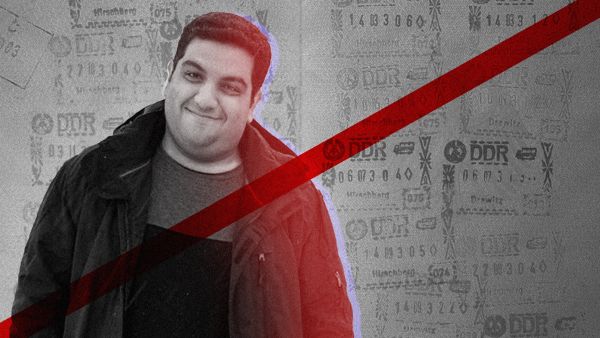Graduate Employees Union at Michigan State University reported that a newly admitted PhD engineering student from Iran was unable to enter the United States and that Customs and Border Protection officers at Detroit Airport questioned him for almost six hours before he was asked to sign a withdrawal on his visa application.
The graduate student permitted me to publish his name: Alireza Yazdani. He met 2 attorneys @nikimehrani & Brad Maze in the Manroe County jail as he is awaiting to be sent back to #Iran on 4:10 PM flight unless his lawyers can get a stay order from the court in the next 3 hours. https://t.co/vzLVDd14Lc pic.twitter.com/1q1CQULwU3
— Bahman Kalbasi (@BahmanKalbasi) January 27, 2020
Alireza Yazdani, a 27-year old Iranian PhD candidate at the Agriculture and Natural Resources College at Michigan State University who arrived at Detroit International Airport after receiving an admission letter and securing a valid visa, has reportedly been deported from the US after being questioned for hours without being given a reason.
In about 20 minutes Alireza Yazdani is scheduled to be deported from Detroit airport, after spending the entire day in detention by @CBP. Today is his birthday. He was set to begin graduate school at @michiganstateu. His attorney says he has a valid visa: https://t.co/gW1DCGMiAH
— dustindwyer (@dustindwyer) January 27, 2020
According to the Graduate Office at MSU, Yazdani has successfully been granted admission at one of the school's graduate programs and has a valid student visa, making is puzzling for them to understand why he was forced to leave the US.
Yazdani had reportedly spent the night in the Monroe County jail in Michigan, waiting for his flight to go back to Iran, sources said.
Social media activists reacted by posting Yazdani's pictures and details, contemplating the reason that could have pushed US officials to ban him from entering the country.
We are at Detroit Metro Airport protesting the deportation of Alireza Yazdani, an Iranian PhD student who just came to the US to study engineering at Michigan State University. @freep @detnews @metrotimes @MLive @MLiveDetroit @michigannews pic.twitter.com/xw4ZxfSmWf
— GEOC Wayne State (@GEOCWSU) January 27, 2020
In their response, CBP pointed out that "the issuance of a visa or participation in the visa waiver program does not guarantee entry to the United States," explaining that the Iranian PhD candidate was "deemed inadmissible at which time he withdrew his application for admission into the United States."
just got a statement from @CBP: pic.twitter.com/5P1UFsBJpl
— dustindwyer (@dustindwyer) January 27, 2020
Iran is one of seven Middle Eastern countries that were affected by the US president's 2017 executive order restricting travel to the United States for citizens of several Muslim majority countries, in what has been known as the 'Trump travel ban'. The travel ban has been criticized and linked to "increasing xenophobic rhetoric in the US."
Recently, tensions between the US and Iran have been on the rise, especially after a US airstrike targeted a top Iranian military general in Baghdad earlier this month.







